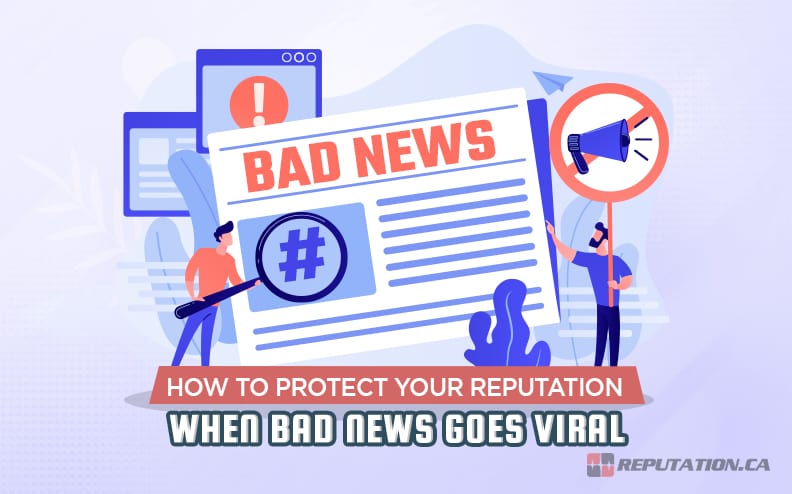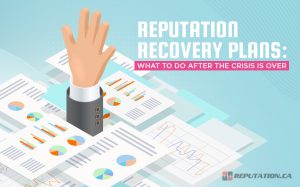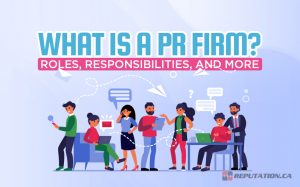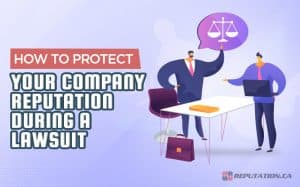A reputation is the perfect example of a societal paradox. A reputation is remarkably strong as it can support the weight and consumer base of an entire company or the social life of an individual. However, it is equally fragile as even the slightest whisper of poor behavior or misconduct can irreversibly destroy it.
In the past, it was not as easy to spread information whenever something unsavory happened. If someone noticed that you had done something worthy of disdain, even if it was a one-time mistake, it likely would not have spread far due to the limitations in communications technology. Nowadays, information is transmissible at near-instantaneous rates and can become “viral.”
When bad news about you or your company goes viral, hundreds of thousands of people can hear about it simultaneously. Modern technology allows us to communicate thousands of miles away with a few taps on a keyboard. Unfortunately, this can quickly eviscerate your reputation as these issues gain traction through a viral following.
Viral sensations are not likely to go away any time soon, especially as communications technology advances and newer, more effective ways to distribute news emerge. This can make protecting your image more challenging than it would have been 20 years ago. This article will provide some tips on how to try and get ahead of viral news and protect your image.
If you are not overly familiar with the way information spreads in an online medium, you might not be familiar with what “viral” means. Society’s advancement is not limited to the technology available but extends to the terminology we employ. The term “viral” in this context is an example of a colloquialism for online content that has seen rapid circulation across multiple media platforms.
Ordinarily, the term “viral” is sought after by content creators on platforms like Instagram, YouTube, and other social media sites. However, going viral is not always good as the concept can be weaponized against certain parties.

When any information circulates rapidly and comes to the attention of a large audience, it is considered viral. This means that any content or information can become viral even when it causes harm to a person or entity’s public image. The viral phenomenon allows information to circulate even when it is not what the consumer originally wanted. For example, a tangentially related search or even perusing a platform where the story is mentioned could generate thousands of new viewers.
For example, let us say that your employees were recorded doing something unsavory such as vandalizing someone else’s property or falsifying information. If the person who recorded the event posts the video online, everyone with an internet connection would be able to access the footage. However, if you are a well-known public presence, the recording could gain more traction than normal and be viewed by half the country in under 24 hours.
When this information is viral, your reputation is placed on the line as the evidence puts you in a bad light. While this can be an issue, you can overcome it by taking measures against the viral media.
Understand the Algorithm
The way viral information works is that it spreads through the algorithm most search engines use to produce useful results. For example, when a user frequently searches for a type of cell phone, the algorithm will start suggesting search results related to that device or even provide links to related search inquiries. This algorithm promotes the rapid spread of information and eases access to that information for each user. However, when the viral information is bad news that harms your reputation, this algorithm can be your worst enemy.
While the algorithm is designed to bring information related to the user’s interests, you can tweak the system. The algorithm uses search engine optimization (SEO) keywords to yield results. This means that search engines like Google or Bing automatically suggest search parameters commonly used concerning an industry or individual. These automatic suggestions can lead users to negative content quicker since the more it spreads, the more people will be looking for it.

Once you grasp the search parameters being used to locate this compromising data, you can plan your next move. The terminology allows you to strategically create new content that can hopefully bury the news and protect your reputation from the brunt of the damage. However, it will require some effort on your part to execute successfully.
Do Not Ignore It!
You might think that simply ignoring the content is the best call since addressing it will only draw attention. Unfortunately, this is the worst mistake you could make in a situation like this. When content surfaces that make you or your company seem less honorable than people thought, your consumers look to you for a response. Failing to provide one will only make you seem more guilty of the acts the content accuses you of doing.
There is a famous example of viral content devastating a company’s public image and the company choosing to ignore it. We are referring to the infamous Disgusting Domino’s People series of viral videos that surfaced in April 2009. The videos featured Domino’s employees Kristy Hammonds and Michael Setzer performing disgusting things to food set to be delivered to a paying customer that evening. While we will not elaborate on what these individuals did to earn the title, the response from Domino’s was what truly damaged their image.
The issue with the pizza chain’s response was that there was no response until a day after Hammond uploaded the videos. The lack of an immediate response made it seem like the company did not care or even condoned their employees’ disgusting acts. While Domino’s fired the two employees, the damage was already done.

The videos had gone viral in less than 24 hours, having garnered 21,000 views before the day was over. Another 24 hours after that, the videos had 760,000 views and reached 1,000,000 views by Wednesday. Domino’s hesitated to make a statement for fear of drawing more attention to the videos. However, decisive and immediate action might have salvaged the situation.
Some even wait out the situation and hope something more controversial becomes viral to divert focus. However, this passive response will not protect your image and will only damage your odds of mending the situation. If another controversy arises and diverts the focus of the audience, they will be uninterested in any statement you eventually make as they are more concerned with the newer issue.
One of the best things you can do when unpleasant content becomes viral is to address it as soon as possible. The longer it sits, the more your consumers will think that you do not care, which can damage your reputation worse than if you had addressed it. However, acknowledging the situation is only one part of the battle.
Make a Statement
While you cannot prevent the information from reaching the eyes and ears of the population, you can make a statement about the content. You have the power to make a public statement to atone for the events depicted in the content and try to get the world to forget about the situation long enough to patch the damage. Your reputation will always be damaged when negative content becomes viral, but your response can control its severity.
With the right statement, you can turn a devastating incident into a minor mishap that the public will forget in a decade. However, your response will vary depending on the type of content that was uploaded.
There are two types of information in the world. The first type is information corroborated by hard evidence and impossible to deny. For example, let us say that the content is a video of your employees intentionally sabotaging a product or belittling a customer. The video proves that this has happened in this situation, and you will need to act against those employees. Immediately terminating their contracts and assuring your customers that these employees no longer work for you is an excellent way of mitigating the damage.

The second type of information is content that is hearsay with no supporting evidence. This can be an accusation from a disgruntled customer or employee who claims you are engaging in unsavory business practices. However, if they have no hard evidence to support this claim, it is harder for them to harm your reputation. Still, even blind accusations can gain traction and become viral as more people cover them. Humanity enjoys such dramatic exchanges. Fortunately, this is easier to counter since, if it is false, you can disprove it with facts and hard evidence and then confront your accuser of libel.
If the accusations are true, you might need to issue a public apology and outline what you will do to prevent a repeat incident. While not ideal, taking accountability and pledging to do better can be effective, especially if your reputation had been particularly good before the content went viral.
Either way, you will need to publicly address the issue if you want to come out ahead of the situation with your reputation intact. However, there is one additional step you can take to take the wind out of viral content’s sails.
Attempt to Have the Content Removed
While this will not always be an option, it is possible to try and have viral content taken down from the platform on which it was posted. However, you cannot do so directly and must coordinate with either the uploader or the platform’s owner. In some circumstances, it is possible to have the content removed if it meets certain criteria that are directly harmful to you or your business. The measures you will need to take will vary depending on who you need to contact, though it can be useful for mitigating the damage.
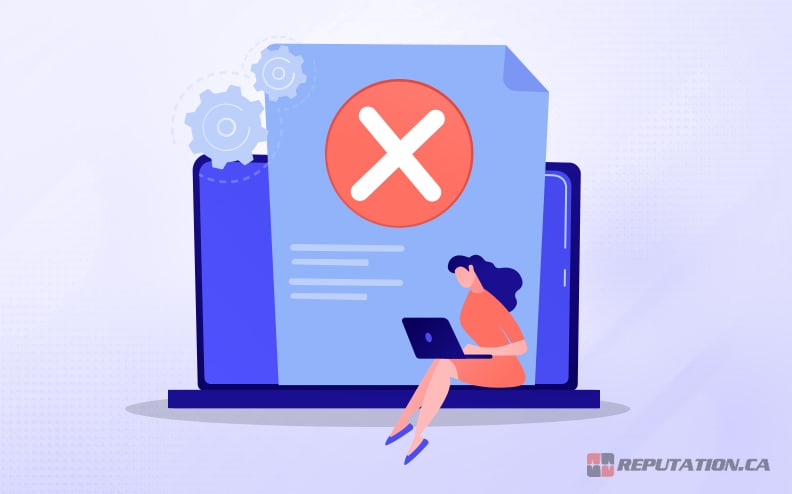
One option is to contact Google to have the content pulled from its results if you can prove it meets the appropriate criteria. The method to remove content from Google is too expansive to cover in this article, but keeping this in mind could make all the difference to your efforts. While the content on the internet can never be fully removed, as the viewers can download the content to their device if they so choose, having it taken down at any time gives you more opportunities to get ahead of the issue.
If you can get the content taken down, you can address the situation before it goes back up, if it ever does, and mend fences. However, this is not a foolproof option and will serve as more of a stopgap measure for you to find a more effective way to protect your reputation. Unfortunately, the scale of the situation might make it too difficult to repair the damage yourself due to a lack of resources or staff. Fortunately, you might not have to try and fix your image alone.
Take Your Reputation Back!
Viral content is a major component of modern information sharing, as more popular content will draw in more viewers. Sometimes, the situation can be skewed if another, more controversial piece of content goes viral, but this is no solution. If you want to protect your reputation in the face of viral news that puts you in a bad light, you will need to be proactive.
A passive approach or hoping it all blows over will only exacerbate the damage and leave your reputation in shreds. While a strong offense can make for the best defense, you might be limited in resources and unable to tackle the issue head-on. Fortunately, this does not have to destroy your reputation as an alternative does exist.

We at Reputation have made reputation marketing our mission. We believe that managing a reputation is insufficient and that you must market your reputation to succeed and overcome. Fortunately, tackling viral content on social media platforms and addressing libel are among our services. While a viral video or post can be detrimental to your image, we can guide you to a solution that will protect you in the long run. So, if you are concerned that viral content might damage your reputation, visit our website today. Together, we can take your reputation back!




